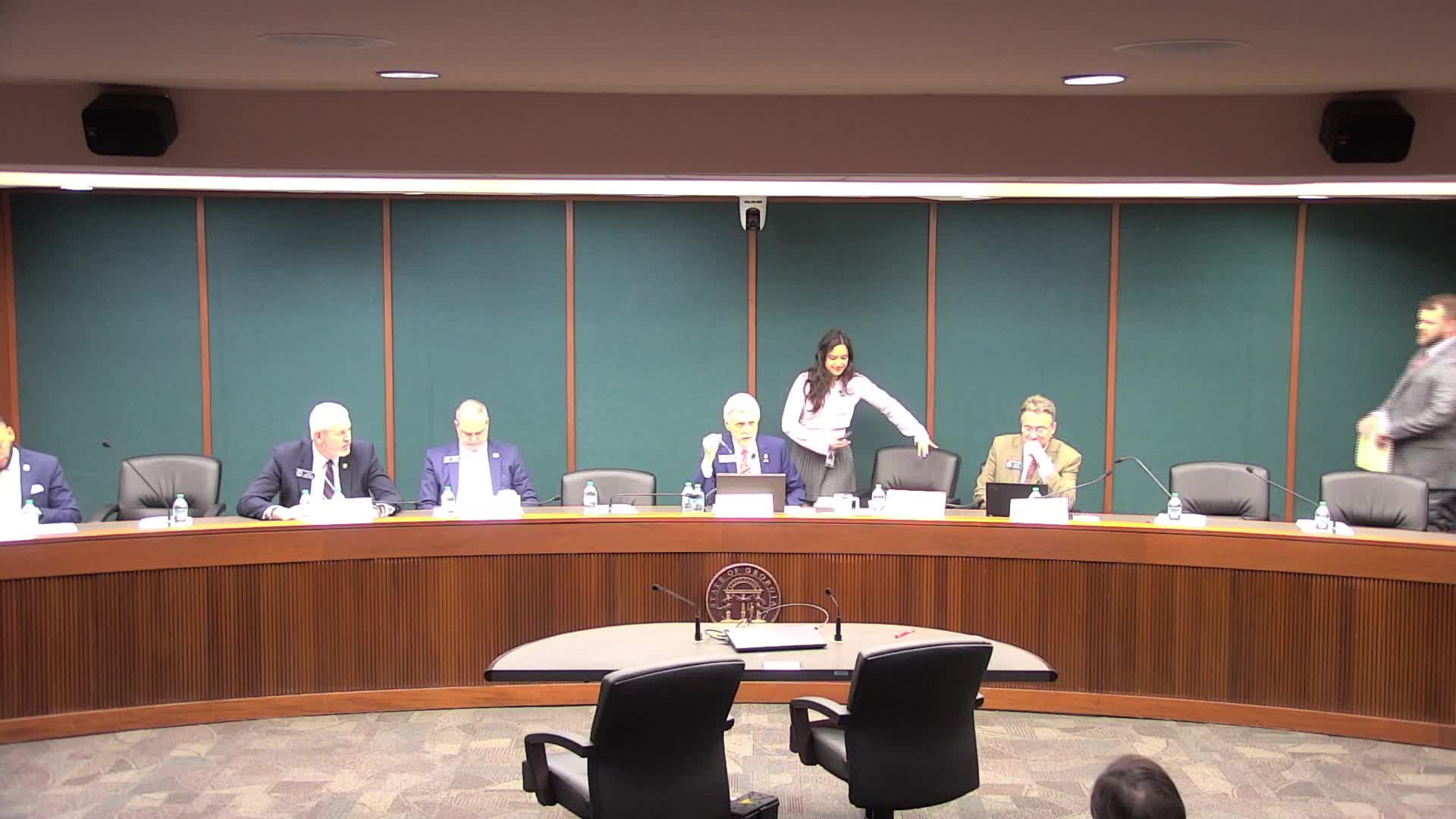Georgia committee advances bill aligning literacy instruction with science of reading, adds dyslexia to state law
Get AI-powered insights, summaries, and transcripts
Subscribe
Summary
Representative Bethany Ballard told the Senate Education and Youth Committee that House Bill 307 will align Georgia literacy policy with the science of reading by removing outdated program language, banning three-cueing as a primary instructional method, adding dyslexia to the Georgia Early Literacy Act, and creating a literacy coach coordination committee.
Representative Bethany Ballard presented House Bill 307 to the Georgia Senate Education and Youth Committee on the bill’s role in tightening literacy instruction and dyslexia screening across the state.
Ballard said the bill "is the next piece of our literacy puzzle," telling senators the measure removes outdated program language, prevents three-cueing from serving as a primary instructional method, and adds dyslexia to the Georgia Early Literacy Act.
The bill’s sponsor told the committee it would create a literacy coach coordination committee to standardize training for literacy coaches, adjust per diem for the literacy council’s travel so hotel costs are covered, and extend the council’s sunset so it can continue implementation work.
Why it matters: supporters said the measure aligns classroom practice with the science of reading and reduces duplicative assessments. Representative Ballard and witnesses told the committee the bill replaces separate dyslexia and grade-level screening with a single screening tool, reducing testing burden on teachers and students.
Committee discussion and testimony
Claire Buck, executive director of the Georgia Association of Curriculum and Instructional Supervisors, testified in support and called the bill a "critical next step in advancing literacy education in Georgia," saying it builds on prior literacy reforms including House Bill 538. Several senators pressed for details on screening and per diem costs. Ballard said the measure "puts us all in line" by moving to one assessment that screens both for dyslexia and grade-level reading, a change recommended by teachers and the literacy council.
Senator Sams and others discussed the lack of precise statewide prevalence data for dyslexia; Ballard and other committee members said shortages in school psychologists and the cost of private assessments limit current data collection.
Committee action
Senator Halpern moved and Senator Payne seconded a motion to pass the committee substitute (LC 492352S). The committee conducted a hand/voice vote and the motion was approved to advance the bill. Individual roll-call vote counts were not specified in the transcript.
What the bill would change
- Remove statutory or program language identified by sponsors as inconsistent with the science of reading. - Prohibit three-cueing from being used as a primary instructional approach and designate three-cueing curricula as not high-quality instructional material. - Add dyslexia (with a definition of its characteristics) to the Georgia Early Literacy Act. - Create a literacy coach coordination committee to ensure uniform training of literacy coaches. - Adjust per diem to better cover travel lodging for the literacy council and extend the council’s sunset date to continue implementation oversight.
Clarifying details and limits
Committee testimony said the single screening would replace separate dyslexia and general reading assessments so teachers administer one test assessing both dyslexia and grade-level reading. Ballard said the per diem adjustment was small and that Senate budget staff reviewed it; she described an estimated figure in committee discussion as on the order of a few thousand dollars per year for the council’s travel costs. Committee testimony also noted that exact statewide dyslexia prevalence is not known because many students have not been assessed through school systems.
Next steps
The committee approved the committee substitute and the bill will move forward in the legislative process. No implementation timetable or effective dates beyond those in the text were specified during the committee discussion.
